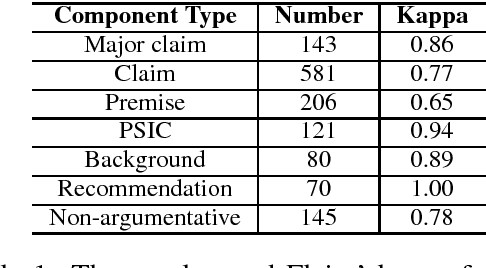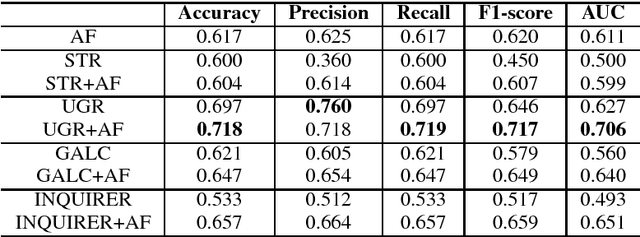Pin Lv
Institute of Software, Chinese Academy of Sciences
Is Intermediate Fusion All You Need for UAV-based Collaborative Perception?
Apr 30, 2025Abstract:Collaborative perception enhances environmental awareness through inter-agent communication and is regarded as a promising solution to intelligent transportation systems. However, existing collaborative methods for Unmanned Aerial Vehicles (UAVs) overlook the unique characteristics of the UAV perspective, resulting in substantial communication overhead. To address this issue, we propose a novel communication-efficient collaborative perception framework based on late-intermediate fusion, dubbed LIF. The core concept is to exchange informative and compact detection results and shift the fusion stage to the feature representation level. In particular, we leverage vision-guided positional embedding (VPE) and box-based virtual augmented feature (BoBEV) to effectively integrate complementary information from various agents. Additionally, we innovatively introduce an uncertainty-driven communication mechanism that uses uncertainty evaluation to select high-quality and reliable shared areas. Experimental results demonstrate that our LIF achieves superior performance with minimal communication bandwidth, proving its effectiveness and practicality. Code and models are available at https://github.com/uestchjw/LIF.
Tree-of-Code: A Tree-Structured Exploring Framework for End-to-End Code Generation and Execution in Complex Task Handling
Dec 19, 2024Abstract:Solving complex reasoning tasks is a key real-world application of agents. Thanks to the pretraining of Large Language Models (LLMs) on code data, recent approaches like CodeAct successfully use code as LLM agents' action, achieving good results. However, CodeAct greedily generates the next action's code block by relying on fragmented thoughts, resulting in inconsistency and instability. Moreover, CodeAct lacks action-related ground-truth (GT), making its supervision signals and termination conditions questionable in multi-turn interactions. To address these issues, we first introduce a simple yet effective end-to-end code generation paradigm, CodeProgram, which leverages code's systematic logic to align with global reasoning and enable cohesive problem-solving. Then, we propose Tree-of-Code (ToC), which self-grows CodeProgram nodes based on the executable nature of the code and enables self-supervision in a GT-free scenario. Experimental results on two datasets using ten popular zero-shot LLMs show ToC remarkably boosts accuracy by nearly 20% over CodeAct with less than 1/4 turns. Several LLMs even perform better on one-turn CodeProgram than on multi-turn CodeAct. To further investigate the trade-off between efficacy and efficiency, we test different ToC tree sizes and exploration mechanisms. We also highlight the potential of ToC's end-to-end data generation for supervised and reinforced fine-tuning.
Tracing Human Stress from Physiological Signals using UWB Radar
Oct 14, 2024Abstract:Stress tracing is an important research domain that supports many applications, such as health care and stress management; and its closest related works are derived from stress detection. However, these existing works cannot well address two important challenges facing stress detection. First, most of these studies involve asking users to wear physiological sensors to detect their stress states, which has a negative impact on the user experience. Second, these studies have failed to effectively utilize multimodal physiological signals, which results in less satisfactory detection results. This paper formally defines the stress tracing problem, which emphasizes the continuous detection of human stress states. A novel deep stress tracing method, named DST, is presented. Note that DST proposes tracing human stress based on physiological signals collected by a noncontact ultrawideband radar, which is more friendly to users when collecting their physiological signals. In DST, a signal extraction module is carefully designed at first to robustly extract multimodal physiological signals from the raw RF data of the radar, even in the presence of body movement. Afterward, a multimodal fusion module is proposed in DST to ensure that the extracted multimodal physiological signals can be effectively fused and utilized. Extensive experiments are conducted on three real-world datasets, including one self-collected dataset and two publicity datasets. Experimental results show that the proposed DST method significantly outperforms all the baselines in terms of tracing human stress states. On average, DST averagely provides a 6.31% increase in detection accuracy on all datasets, compared with the best baselines.
Using Argument-based Features to Predict and Analyse Review Helpfulness
Jul 23, 2017

Abstract:We study the helpful product reviews identification problem in this paper. We observe that the evidence-conclusion discourse relations, also known as arguments, often appear in product reviews, and we hypothesise that some argument-based features, e.g. the percentage of argumentative sentences, the evidences-conclusions ratios, are good indicators of helpful reviews. To validate this hypothesis, we manually annotate arguments in 110 hotel reviews, and investigate the effectiveness of several combinations of argument-based features. Experiments suggest that, when being used together with the argument-based features, the state-of-the-art baseline features can enjoy a performance boost (in terms of F1) of 11.01\% in average.
 Add to Chrome
Add to Chrome Add to Firefox
Add to Firefox Add to Edge
Add to Edge